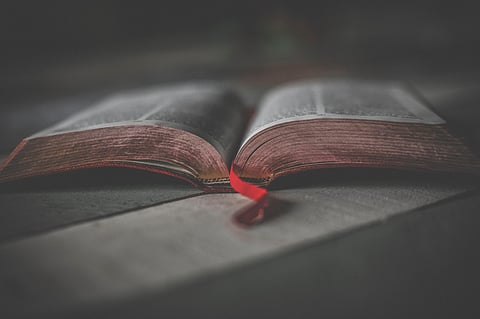

The Upanishads have been read by people from all over the world and translated into different languages. Great Western Philosophers like Arthur Schopenhauer and orientalists like Max Mueller were greatly influenced by the Upanishads. It is interesting to see how the Upanishads travelled to the west.
The eldest son of Mughal Emperor Shah Jahan and Mumtaz Mahal was Dara Shikoh, who lived from 1615 to 1659. Though he was made the crown prince, Dara Shikoh could not become the emperor as he was defeated, and later killed, by his younger brother Aurangzeb. Dara’s mother tongue was Persian, but from a young age, he was very interested in reading about the religions of the world in different languages. He assembled a team of Pandits in Varanasi for the first-ever translation of the Upanishads into a non-Indian language. The team prepared draft translations that were edited and polished by Dara. The book produced was called Sirr-i-Akbar (The Great Secret).
In 1775, Dara’s translation first came to the notice of western scholars when a copy was sent by the French resident at the court of Shuja-ud-daula, Nawab of Awadh, to Anquetil Duperron, a famous French traveller and translator. At that time, Persian was the most well-known Eastern language in Europe. Duperron translated the book from Persian into Latin. It was published under the name ‘Oupnekhat’.
When Arthur Schopenhauer read this, he was most impressed. He said, ‘The Upanishads are the production of the highest human wisdom and I consider them almost superhuman in conception. The study of the Upanishads has been a source of great inspiration and a means of comfort to my soul. From every sentence of the Upanishads deep, original and sublime thoughts arise, and the whole is pervaded by a high and holy, and earnest spirit. In the whole world, there is no study so beneficial and so elevating as that of the Upanishads. The Upanishads have been the solace of my life and will be the solace of my death.’
American poets Ralph W Emerson, Walt Whitman and Henry David Thoreau popularised Upanishads in America before they got a big boost by the visit of Swami Vivekananda. Nobel Prize-winning physicist Erwin Schrodinger said that most of his ideas and theories were heavily influenced by Upanishads. Scientists Niels Bohr and Nikola Tesla and astronomer Carl Sagan were also fans of the Upanishads.
Another Nobel Prize-winner physicist, Heisenberg, who is known for his uncertainty principle, visited India and had long talks with Tagore, which convinced him that his ideas about Quantum Physics were not as crazy as they sounded! Upanishads have a universal appeal that transcends the boundaries of east and west.